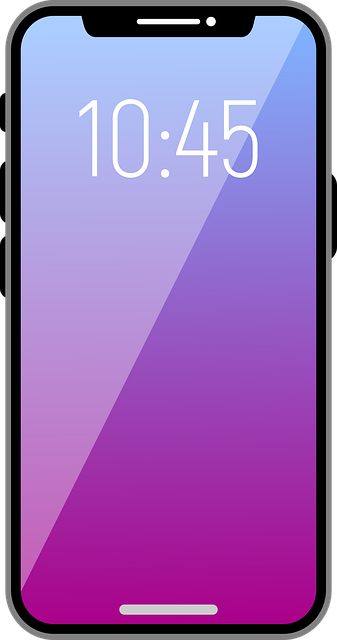Spam calls are a prevalent issue in the U.S., including West Virginia, regulated by the Telephone Consumer Protection Act (TCPA). Residents can protect themselves by registering on 'Do Not Call' lists, using call-blocking apps, and consulting specialized law firms or lawyers for legal action against offenders. Engaging with Spam Call law firms offers access to resources and databases, while community education and collaboration through workshops help residents recognize and report suspicious calls, strengthening the state's defense against spam. Key SEO keywords: How to Stop Spam Calls West Virginia, Spam Call Law Firm West Virginia, Spam Call Lawyers West Virginia, TCPA West Virginia.
In West Virginia, spam calls are not just an annoyance; they’re a legal and privacy concern. Understanding the intricacies of these calls and their legal ramifications under the Telephone Consumer Protection Act (TCPA) is crucial. This guide equips you with strategies to create an effective awareness program. Learn how to identify and track down sources, engage your community, and collaborate with top-rated spam call law firms in West Virginia to combat this pervasive issue. Discover steps to stop spam calls once and for all in the Mountain State.
Understanding Spam Calls and Their Legal Ramifications in West Virginia
Spam calls, often referred to as unsolicited or abusive phone marketing, are a prevalent issue across the United States, including West Virginia. These calls can range from pre-recorded messages promoting products and services to live sales representatives making unwanted contact. Understanding the legal implications of spam calls is crucial for businesses and individuals alike. In West Virginia, the Telephone Consumer Protection Act (TCPA) has been implemented to protect residents from these invasive practices.
The TCPA establishes rules regarding automated or prerecorded calls, text messages, and faxes sent for marketing purposes. It gives consumers the right to sue companies that violate its provisions, seeking damages and injunctive relief. A spam call law firm or lawyer specializing in TCPA cases in West Virginia can guide individuals on their rights and help them navigate legal action if necessary. By knowing the law and taking proactive measures, West Virginians can protect themselves from spam calls and ensure a more peaceful and private communication environment.
Identifying and Tracking Down Sources of Spam Calls
Identifying and tracking down sources of spam calls is a crucial step in creating an effective awareness program to combat this nuisance in West Virginia. With the Telephone Consumer Protection Act (TCPA) as your guide, you can take proactive measures to stop these unwanted intrusions. Start by analyzing call patterns; notice if the calls are incoming from local or long-distance numbers, and whether they follow a specific schedule. Many spam call law firms in West Virginia have resources to help identify suspicious numbers and track down their origins.
Next, engage in a comprehensive investigation using available tools and software that can trace the source of these calls. This process involves matching phone numbers against known databases of spammers, which are often maintained by legal experts specializing in TCPA cases. By combining technological tools with industry insights from spam call lawyers West Virginia, you can pinpoint the sources, be it a single malicious actor or a network of offenders, and take the necessary legal actions to stop them, ensuring a safer communication environment for residents across the state.
Crafting an Effective Awareness Program: Strategies and Tactics
Creating an effective awareness program to combat spam calls in West Virginia involves a multi-faceted approach leveraging various strategies and tactics. Start by educating your community about the prevalence and impacts of spam calls, using clear and concise messaging tailored to local demographics. Collaborate with local businesses, schools, and community centers to host workshops and seminars focused on identifying and reporting spam calls, reinforcing the importance of consumer protection under the Telephone Consumer Protection Act (TCPA).
Incorporate digital tools and resources that empower individuals to fight spam calls directly. Encourage the use of call-blocking apps, automatic call screening systems, and do-not-call registry enrollments. Partner with reputable law firms specializing in TCPA litigation to offer free consultations and legal aid for affected residents. By combining public awareness, community engagement, and technological solutions, West Virginia communities can significantly reduce spam calls and protect consumers from unwanted intrusions.
Engaging the Community and Collaborating with Legal Experts in WV
Engaging the community is a key step in creating an effective awareness program to combat spam calls in West Virginia. Educating residents about how to recognize and report suspicious calls can empower them to take proactive measures against this nuisance. Local organizations, schools, and community centers can serve as hubs for workshops, seminars, and information sessions, ensuring that valuable knowledge reaches a wide audience. By fostering open dialogue and providing practical tips, you can create a network of informed individuals who will be better equipped to handle spam calls.
Collaboration with legal experts in West Virginia is equally vital. Engaging the services of experienced attorneys specializing in TCPA (Telecommunications Consumer Protection Act) litigation can provide critical insights into the legal framework surrounding spam calls. These professionals can offer guidance on interpreting and enforcing anti-spam laws, ensuring that your awareness program stays compliant and effective. They can also assist in drafting robust reporting mechanisms and providing support to those who have fallen victim to spam calls, contributing to a safer and more informed community across West Virginia.






